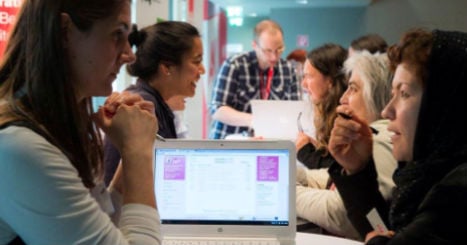The latest PwC Women in Work Index, which rates countries based on equal pay and access to the job markets for men and women, suggests that women in Austria get paid on average 23 percent less than men and only 65 percent work full time.
It follows similar findings released by Eurostat in March that also showed a 23 percent gender pay gap, seven percent higher than the EU average.
In PwC's study, the gender pay gap is worked out by comparing the female median wage to male median wage in Austria.
In this year’s index Austria is ranked 21 out of the 33 countries in the Organisation for Economic Co-operation and Development (OECD), a drop of seven places since 2000.
In comparison, in the country ranked first – Sweden – the difference in earnings is 15 percent and 85 percent of women there are in full time work.
“The shortage of affordable, quality child care after the birth of a child is the main barrier for the return of women to the workplace,” explains Olivia Stiedl, Senior Manager at PwC Austria.
“Tax incentives for returning to work and for the shared parental leave as well as more transparency of salaries would promote equality and facilitate women’s re-entry into the workplace.”
Women who have spoken to the Local Austria about returning to work after having a baby say that although there is a lot of financial support for maternity leave and free kindergarten places available, the lack of childcare care for 0-3 year olds makes it difficult to return quickly to work.
One woman said that without her mother also around to help out, she would not have been able to even consider returning to her job as an architect.
Others say they have also witnessed blatant sexism in the workplace. Sara Hofstein, who works in the film industry, said an Austrian film company told her in an interview they “like to do things the 'Hollywood way' and not hire women on set.”
“It shocked me,” she told The Local Austria. “You hear about women being sidelined but I never heard it so blatantly before.”
According to PwC, Austria could increase the country’s GDP by nine percent if it raised the number of women in employment from 71 percent to 79 percent.
“Through fair wage and promotion decisions, companies have to ensure that all employees are fairly salaried. They should also promote the career development of female employees to build the pool of female executives for the future,” says Stiedl.
“Through the promotion of a flexible worktime model, companies can tap into the full potential of female employees, by appointing them into positions appropriate for their skills and experience.”


 Please whitelist us to continue reading.
Please whitelist us to continue reading.
Member comments